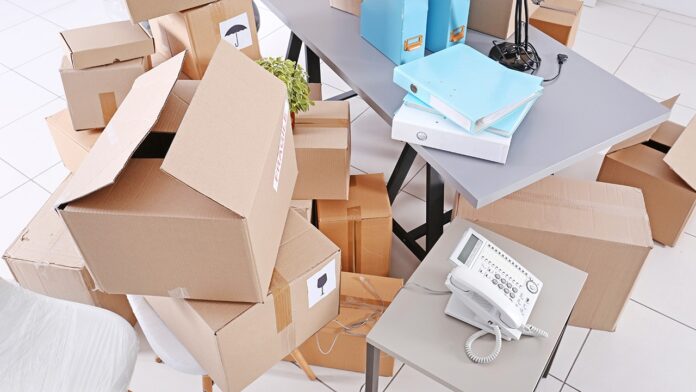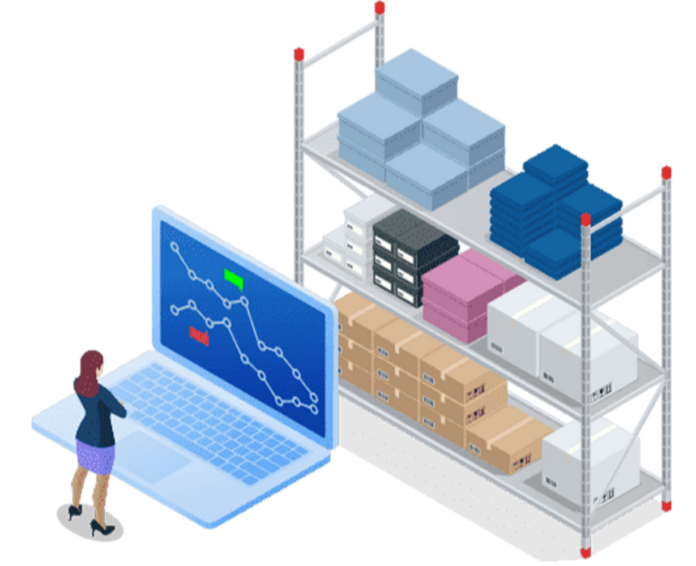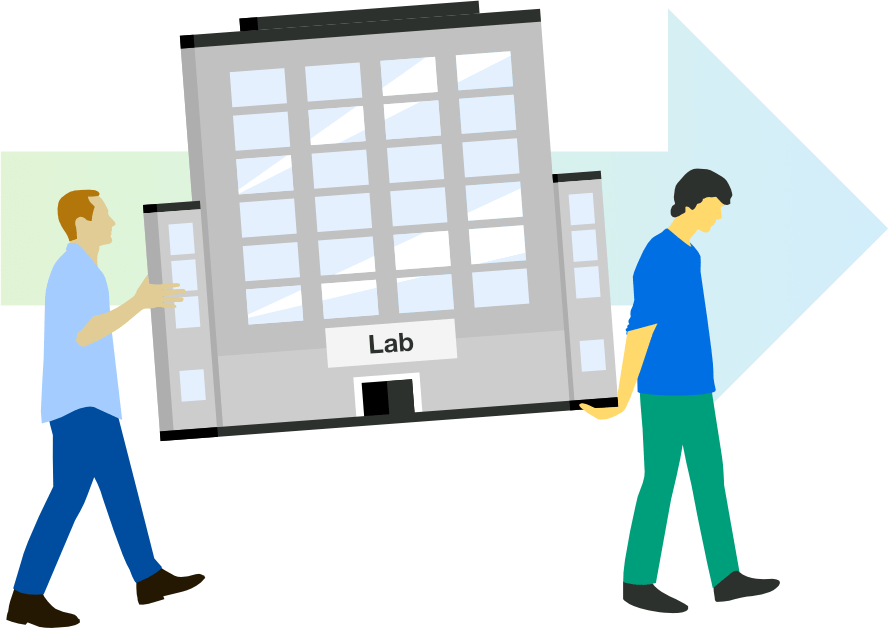Relocating a laboratory is a significant undertaking, involving the transport of sensitive equipment, valuable research materials, and maintaining the integrity of ongoing projects. Lab relocation services specialize in handling these complexities, ensuring a seamless transition. This comprehensive article explores the intricate world of lab relocation services, offering insights that go beyond the basics.
Table of Contents
- Introduction to Lab Relocation Services
- Challenges in Laboratory Relocation
- Key Components of Successful Lab Relocation
- The Role of Professional Lab Relocation Services
- Preparing for a Lab Move: Best Practices
- Cost Analysis and Budget Planning for Lab Relocation
- Future Trends in Lab Relocation Services
- Selecting the Right Lab Relocation Service Provider
- Conclusion
1. Introduction to Lab Relocation Services
Lab relocation services are specialized logistics services that facilitate the moving of laboratory settings, including equipment, chemicals, biological specimens, and data repositories, from one location to another.

2. Challenges in Laboratory Relocation
- Handling Sensitive Equipment: Laboratories house delicate instruments that require careful handling.
- Maintaining Sample Integrity: Biological and chemical samples often need controlled environments.
- Data Preservation: Secure transfer of digital and physical research data is crucial.
Statistic: A survey found that 70% of lab relocations encounter challenges related to equipment handling.
3. Key Components of Successful Lab Relocation
- Detailed Planning: Mapping out every aspect of the move minimizes disruptions.
- Compliance and Safety: Adhering to legal and safety regulations during transport.
- Coordination: Synchronizing teams for packing, transport, and setup.
4. The Role of Professional Lab Relocation Services
Professional movers offer:
- Expertise: Specialized knowledge in handling lab equipment and materials.
- Risk Management: Minimizing the risks associated with moving hazardous materials.
- Logistics Coordination: Streamlining the entire relocation process.
5. Preparing for a Lab Move: Best Practices
- Inventory Management: Cataloging all items to be moved.
- Decommissioning and Recommissioning: Safely shutting down and setting up equipment.
- Stakeholder Communication: Keeping all parties informed throughout the process.

6. Cost Analysis and Budget Planning for Lab Relocation
While costs vary, factors like distance, volume, and special requirements play a significant role. Budgeting accurately for these factors is essential.
7. Future Trends in Lab Relocation Services
Emerging trends include the integration of technology for tracking and managing the relocation process, and the increasing use of sustainable practices.
8. Selecting the Right Lab Relocation Service Provider
Key considerations include:
- Experience and Reputation: A track record of successful relocations.
- Service Scope: Ability to cater to specific lab needs.
- Insurance and Liability: Adequate coverage for the move.
9. Sustainable Relocation Practices
With growing environmental awareness, many labs now seek relocation services that offer sustainable practices. This includes:
- Eco-Friendly Packing Materials: Using biodegradable or recycled materials for packing.
- Efficient Transportation: Optimizing routes and transportation methods to reduce carbon emissions.
- Waste Reduction: Minimizing waste during the relocation process and ensuring proper disposal of non-recyclable materials.
10. Technology-Driven Relocation Solutions
Advancements in technology play a crucial role in modernizing lab relocations:
- Inventory Tracking Systems: Utilizing RFID or barcode systems for real-time tracking of equipment and samples.
- Digital Documentation: Keeping digital records of all aspects of the move for better coordination and compliance.
- Virtual Planning Tools: Using software for pre-move planning, including 3D modeling of the new lab layout.

11. Post-Relocation Support
Post-move support is essential to ensure that the laboratory is fully functional in its new location:
- Equipment Calibration: Calibration of instruments post-relocation to ensure they are operational and accurate.
- Technical Assistance: On-site technical support to address any issues that may arise after the move.
- Follow-Up Services: Regular check-ins to ensure everything is running smoothly and to address any residual concerns.
12. Insurance and Risk Management
Comprehensive insurance coverage is crucial for protecting against potential losses during the move:
- Transit Insurance: Covering damages or losses that occur during transportation.
- Liability Insurance: Protecting against potential liabilities arising from the move.
- Risk Assessment: Professional movers conduct thorough risk assessments to plan and mitigate potential issues.
13. Customized Relocation Strategies
Each lab has unique requirements; hence, a one-size-fits-all approach is not feasible. Customized strategies can include:
- Special Handling for Sensitive Equipment: Custom protocols for moving highly sensitive or expensive laboratory equipment.
- Tailored Packing Solutions: Specific packing techniques for different types of lab materials and chemicals.
- Flexible Scheduling: Planning the move to minimize downtime and disruption to ongoing research.
14. Training and Compliance Awareness
Training staff on the new setup and ensuring compliance with all relevant laboratory standards in the new location is essential. This might include:
- Safety Training: Educating staff on any new safety protocols or equipment.
- Compliance Workshops: Workshops on regulatory compliance in the new location, especially if crossing state or national boundaries.
- Operational Training: Training on any new systems or processes implemented during the move.

15. Evaluating the Financial Implications of Lab Moves
Understanding and evaluating the financial implications of a lab move are critical. This involves:
- Detailed Cost Breakdown: Receiving a comprehensive breakdown from the moving company, including hidden costs or potential overage charges.
- Investment in Quality: Balancing the cost against the quality of service. Opting for the cheapest option might not always be the best decision, especially when dealing with delicate lab equipment.
- Long-term Savings: Considering potential long-term savings from a successful move, such as reduced operational costs in a more efficient lab layout.
16. Staying Ahead with Pre-move Planning
Pre-move planning is an essential step that should not be overlooked. It includes:
- Detailed Site Survey: Conducting thorough site surveys of both the current and new lab spaces to anticipate challenges.
- Customized Move Plan: Developing a plan tailored to the specific needs and constraints of the lab.
- Regular Meetings: Scheduling regular meetings with the moving company to stay updated and make timely decisions.
17. Leveraging Professional Expertise
Leveraging the professional expertise of the lab moving company is key to a successful relocation. It’s important to:
- Utilize Their Experience: Benefit from their experience in handling similar lab moves.
- Seek Advice: Don’t hesitate to ask for advice on best practices and efficient moving strategies.
- Collaborate Closely: Work closely with the moving company’s team for a seamless move.
18. Conclusion
The successful relocation of a laboratory hinges on meticulous planning, specialized expertise, and the right partnership with a lab moving company. By understanding the complexities, planning for sustainability, leveraging technology, and focusing on post-relocation support, laboratories can achieve a smooth and efficient transition.









